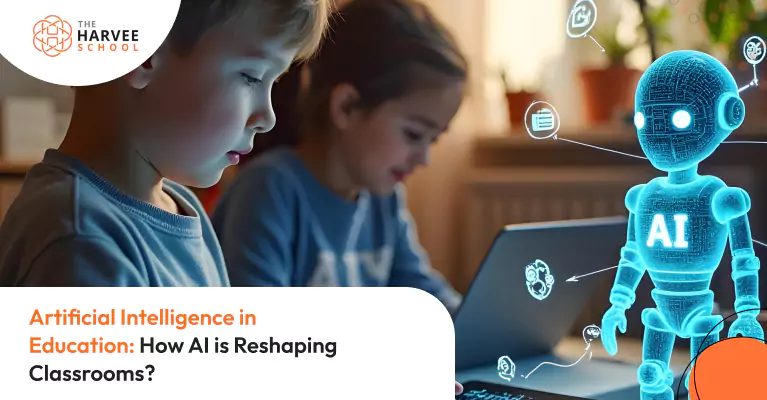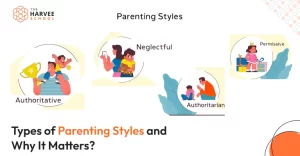Artificial Intelligence in Education: How AI is Reshaping Classrooms?
Artificial Intelligence (AI) is transforming multiple industries, and education is no different. With advancements in machine learning, automation, and data analytics, AI is creating more efficient and personalized learning experiences. From intelligent tutoring systems to automated grading, AI is revolutionizing how students learn and educators teach. This article explores how AI is reshaping classrooms and what the future holds.
The Role of AI in Education
AI in education is designed to enhance learning experiences by offering personalized solutions and automating repetitive tasks. Here are some key ways AI is influencing education:
1. Personalized Learning
Traditional education follows a one-size-fits-all approach, but AI-driven systems can analyze student performance and tailor learning materials accordingly. AI-powered platforms, such as adaptive learning systems, adjust content difficulty based on student progress, ensuring an optimized learning journey.
Real-World Example:
Platforms like Khan Academy and Duolingo use AI-driven algorithms to personalize learning paths. They assess students’ strengths and weaknesses, providing customized exercises and feedback.
2. AI-Powered Tutors
AI-based tutoring systems provide instant feedback and guidance to students. These virtual tutors can answer queries, offer explanations, and provide additional resources, making learning more interactive and accessible.
Popular AI Tutor
- ChatGPT-based tutors – Offer real-time assistance for homework and concept clarification.
3. Automated Grading and Assessment
Teachers spend countless hours grading assignments and exams. AI streamlines this process by automatically evaluating tests, quizzes, and even essays using Natural Language Processing (NLP) algorithms. This reduces workload and allows educators to focus on teaching.
Case Study:
A study by McKinsey found that AI-based grading systems can reduce teachers’ workload by up to 40%, allowing them to dedicate more time to student engagement and curriculum planning.
4. Smart Content Creation
AI assists in generating study materials, summarizing textbooks, and creating quizzes. It can also transform traditional learning materials into digital formats, making education more accessible across different platforms.
AI Tools for Content Creation:
- Quizlet – Uses AI to create customized quizzes based on textbooks.
- ScribeSense – Converts handwritten notes into digital text, making it easier to store and share study materials.
5. Enhanced Student Engagement
Gamification, AI-powered chatbots, and immersive learning experiences using AI-driven Virtual Reality (VR) and Augmented Reality (AR) increase student engagement. These technologies make learning fun and interactive, improving retention rates.
Example:
- Google Expeditions – Uses VR and AR to take students on virtual field trips, making history and science lessons more engaging.
- Dreamscape Learn – Integrates AI with VR to create immersive educational experiences in subjects like biology and physics.
6. Predictive Analytics for Better Learning Outcomes
AI helps institutions track student performance, identify learning gaps, and predict future outcomes. Schools can use AI-driven insights to implement interventions that enhance student success rates.
AI in Action:
- IBM Watson Education – Uses predictive analytics to identify struggling students and provide targeted support.
- Century Tech – AI-powered learning platform that detects knowledge gaps and offers personalized study plans.
Benefits of AI in Education
AI in education offers numerous benefits, including:
- Improved Learning Efficiency: AI adapts to individual learning paces, ensuring a more effective learning process.
- Reduced Administrative Work: Teachers and administrators can automate repetitive tasks, allowing more time for strategic planning.
- Increased Accessibility: AI-powered tools support students with disabilities through speech recognition, text-to-speech, and other assistive technologies.
- Cost Savings: Automated solutions reduce the need for physical resources, making education more affordable.
- Scalability: AI enables institutions to teach large numbers of students simultaneously while maintaining personalized learning.
Challenges of AI in Education
Despite its benefits, AI in education comes with challenges:
- Data Privacy and Security: Collecting and analyzing student data raises concerns about privacy and data protection.
- High Implementation Costs: AI-driven systems require significant investment in infrastructure and training.
- Dependence on Technology: Excessive reliance on AI may hinder the development of critical thinking and problem-solving skills.
- Ethical Considerations: AI-driven decisions must be transparent and unbiased to ensure fair learning opportunities.
Possible Solutions:
- Implement strict data privacy policies to protect student information.
- Encourage a balanced approach where AI complements, rather than replaces, traditional teaching methods.
- Ensure continuous teacher training to help educators integrate AI into classrooms effectively.
The Future of AI in Education
The future of AI in education is promising. As technology advances, AI-driven tools will become more sophisticated, offering hyper-personalized learning experiences. AI will also play a significant role in bridging educational gaps, providing quality education to students in remote and underprivileged areas.
Upcoming AI Trends in Education:
- AI-powered immersive classrooms that offer real-time language translation.
- Emotion AI to analyze students’ moods and adapt teaching styles accordingly.
- Blockchain-based AI solutions to enhance the security of academic credentials.
Conclusion
Artificial Intelligence is revolutionizing the education sector by enhancing personalization, automating tasks, and improving engagement. While challenges exist, AI’s benefits far outweigh the drawbacks, making it a game-changer in modern learning environments. As AI continues to evolve, its impact on education will only grow, shaping a smarter and more inclusive future for learners worldwide.






